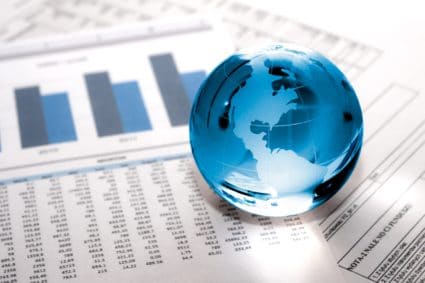Economic desperation brings out the worst in everyone, but the government has the most power to do the most harm.
June 13, 2022
By: Bobby Casey, Managing Director GWP
In fact, to some degree or another, the world is heading this way. There are other economic factors that will indeed exacerbate the problem, depending on where you go. But the global economy is will feel this ripple.
It’s an interesting phase right now because retailers are deeply discounting and selling a large volume of inventory, but their revenues are nonetheless down.
No one’s money is worth much. Its buying power is dwindling. Similar to what we saw with US universities: the cost is going up, but neither the quality nor quality has improved.
This is the phase before retailers and distributors cut their inventory and stop ordering as much. They might cut the variety, which means they won’t carry as many brands. They might cut volume of the brands they have.
What we know will happen is, after this inventory gets pushed out, the next round of inventory will be more expensive to make up for the losses.
An article out of Zerohedge says the following:
American consumers are straining under rising prices. To make ends meet, they are turning to credit cards and depleting savings. Consumer debt has risen to record levels, while the savings rate has plunged to the lowest level since 2008.
And the World Bank also issued a warning: “The world economy is again in danger. This time, it is facing high inflation and slow growth at the same time. … It’s a phenomenon — stagflation — that the world has not seen since the 1970s.”
If the world over is expected to experience this, what difference does it make where you are?
Think of this like the Covid-19 pandemic. Every country got it, but not every country handled it the same though. Some countries made things much worse than they needed to be, while others didn’t do as much.
Same virus, different response.
Now consider inflation. Some countries will try and print their way out of it. They will expand their welfare state and do what the people are doing: rack up the debt.
Others won’t because, in some cases, they can’t! They really do just have to suffer through it because their countries are not in a position to borrow or print their way out. It’s also important to consider which countries answer to which countries… the US and Chinese hegemony is a decades-long battle waging across the world.
The US, the UK, and the EU are nice places to be, but aren’t likely to respond responsibly to the coming stagflation. Some Southeast Asian countries like perhaps Thailand or the Philipines, maybe some South American and Central American countries, or even Mexico might be on your radar while things blow over. Even some Caribbean countries might be on your radar!
Of course it all depends on what their governments do, but in the mean time, have you even considered this?
It’s one thing to agree and nod alone, but it’s another to do it.
Have you had this inner monologue: “Yeah, maybe money in general won’t go as far as it used to, but are there places in the world where my currency can go further? Are there currencies I might consider diverting some of my holdings into that are more stable than my own?”
Now might be the right time to do this. Expatriating your money to a place where the government is a little less desperate to take it, a lot less powerful to actually pull it off, and during a time when the temptation to do so is rising, is not a bad idea.
Remember when Franklin D. Roosevelt confiscated the gold of the American citizenry?
The government of Franklin D Roosevelt seized all gold bullion and coins via Executive Order 6102, forcing citizens to sell at well below market rates. Immediately after the “confiscation”, the government set a new official rate for gold that was much higher as part of the Gold Reserve Act 1934.
It was closer to an act of eminent domain: where the government can force you to sell your property for the “greater public good”. FDR nationalized the gold he took.
OH but that was nearly 90 years ago! Come on… we are past that!
Are we? He was in the midst of a terrible depression, that his own policies were protracting. You think contemporary governments are above this? Think again.
The same government that will seize your assets presuming its guilt for participating in a crime…
Perhaps you recall what happened in Cyprus? When Cypriot banks were collapsing and expropriated the holdings of its clients? That was less than 10 years ago.
China’s capital controls over its citizens through a social credit score… that’s happening now.
Look at what Canada did during the protests in Ottawa?
Never think your government is above something atrocious. It’s not.
Economic desperation is coming. Politicians need people to think everything is fine while keeping their cronies happy… but they need money to do it. Is it totally asinine to suggest that the movement toward a cashless society makes expropriation, eminent domain, and freezing of assets just a little easier?
It’s time to think about offshore banking. There is no single plan for all. There’s a unique plan for each circumstance and person. For example, your home country might be the worst for you but the best for foreign investors!
Click here to get a copy of our Offshore Banking Report, or here to become a member of our Insider program where you are eligible for free consultations, deep discounts on corporate and trust services, plus a wealth of information on internationalizing your business, wealth and life.


